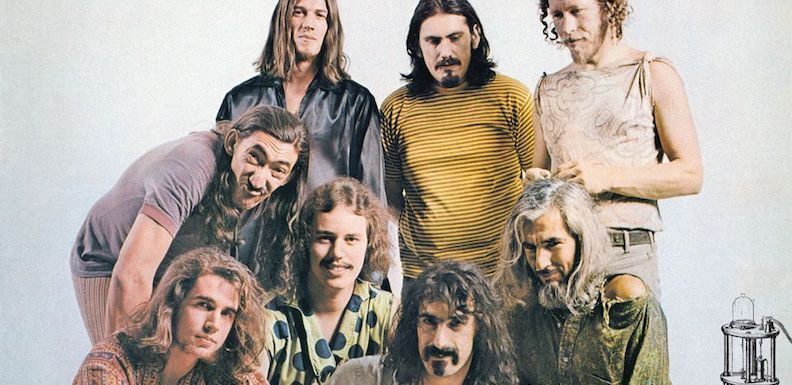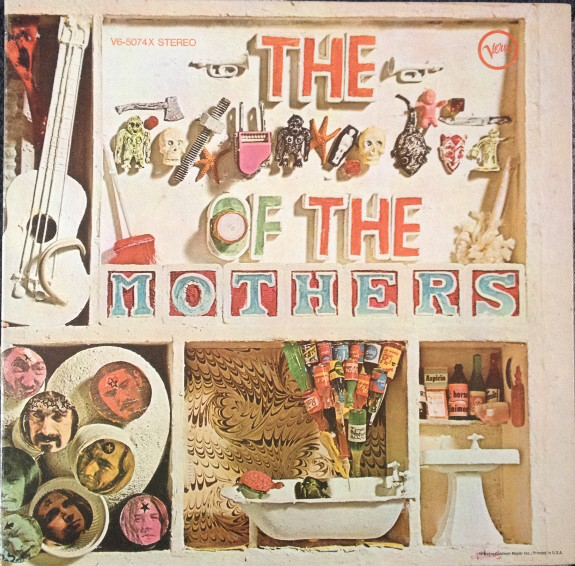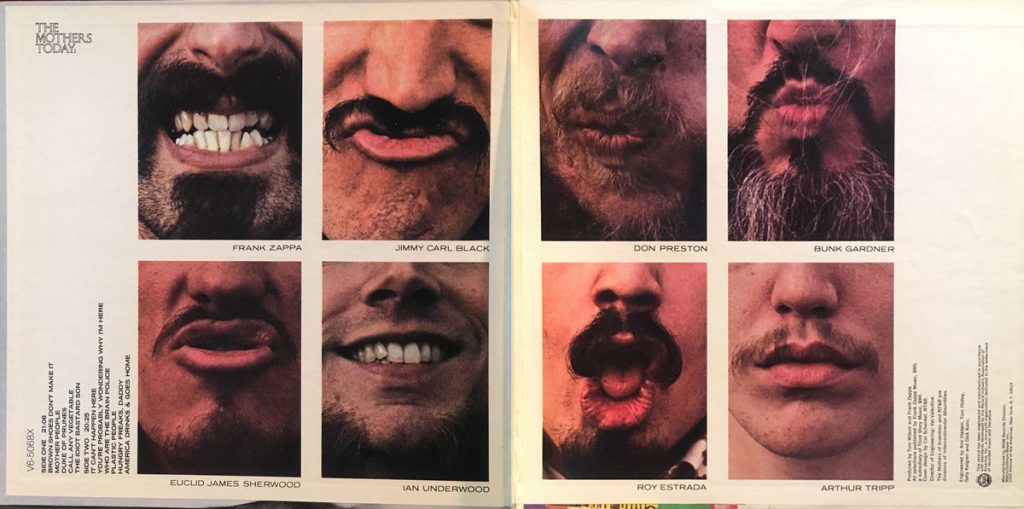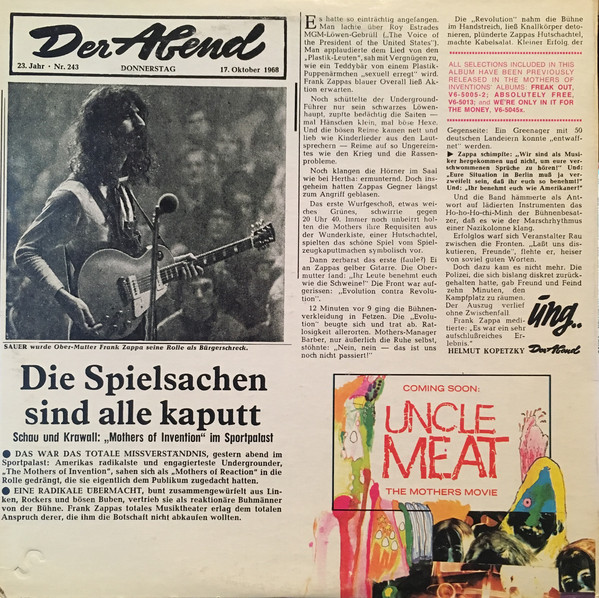
All artists release compilation albums. Even a band like X-Ray Spex had a bunch of compilation albums, and they only recorded one album. Frank Zappa is no different, though Zappa’s comps typically used alternate versions and different mixes from the albums. Mothermania, released at the beginning of 1969, was the first of these compilations, featuring only five of its eleven tracks in the standard, album version. (Oddly enough, all five are the selections from Absolutely Free; “Call Any Vegetable” features the same mix, but has been edited for this release.)
Of course, Mothermania isn’t the only compilation from around this time. Mothermania isn’t even the only compilation to come out in 1969! Over the next few years, MGM/Verve would release a number of greatest-hits-type albums. That said, none of these had Zappa’s input, and aren’t counted as “official” albums until 1985’s The Old Masters — so we won’t be covering those here.

Still, Mothermania is a bit peculiar. Though Zappa had released five albums at this point, the compilation focuses only on the first three albums — with a special focus on Absolutely Free. We’re Only In It For the Money only gets two tracks and Freak Out gets four. And one of those four is “It Can’t Happen Here,” which seems like an odd choice, especially to open side two. The Money tracks are in new mono mixes, where Freak Out has new stereo mixes. Why is Money only represented in mono? No idea.
While Mothermania is a very odd compilation, it hangs together surprisingly well. Opening with “Brown Shoes Don’t Make It” is a surprising move, but it works, and flows well into “Mother People” — an uncensored version with the “Shut your fucking mouth about the length of my hair” verse reinstated.
Next is the one-two punch of “Duke of Prunes” and “Call Any Vegetable,” followed by “Idiot Bastard Son.”
Side two focuses more on Freak Out, opening with the aforementioned “It Can’t Happen Here,” to “You’re Probably Wondering Why I’m Here” and “Who Are the Brain Police?” From there we return to Absolutely Free with “Plastic People,” back to Freak Out with “Hungry Freaks, Daddy” and finally, “America Drinks and Goes Home” closes the album, as it does Absolutely Free.

There’s no real division of sides here in terms of “straight” versus “bizarre.” The second side might be a little more avant-garde, but then it’s got “You’re Probably Wondering Why I’m Here” right there, breaking that rule. But, then, too, would splitting the album into more straightforward and more experimental really have given a new listener a proper feel for Zappa? Probably not.
Given that the subtitle is “The Best of the Mothers,” it’s interesting to hear what Zappa presumably thought was the best of his first three albums. And given that Zappa didn’t exactly have any hits at this point, there’s no particular commerciality driving the project — no tracks that necessarily needed to be on the album to help sell it. But, for the most part, Mothermania does indeed hit a lot of the highlights of those first three LPs. It’s a satisfying listen, and works as an excellent primer.

While nowadays there are other compilations that are better for a true Zappa neophyte, back in 1969, Mothermania would have been a great introduction. The unofficial follow-up compilation The ***** of the Mothers was a mess, seemingly trying to ape the breadth of this album — but the unnamed compiler clearly didn’t understand the logic of Zappa’s work, and instead of sounding like an album on its own, it’s just…. a random collection of tracks from the same three albums where seemingly the only requirement was that the songs couldn’t have appeared on Mothermania. Let’s just say, there’s a reason there was never a reissue, while Mothermania remained in print throughout the first half of the 1970s.
Kittysneezes is supported by readers like you. If you enjoy what you’ve read here, please consider supporting us on Patreon, on Ko-Fi or via the Kittysneezes Boutique. And remember to check out our brand new podcast, Rite Gud!